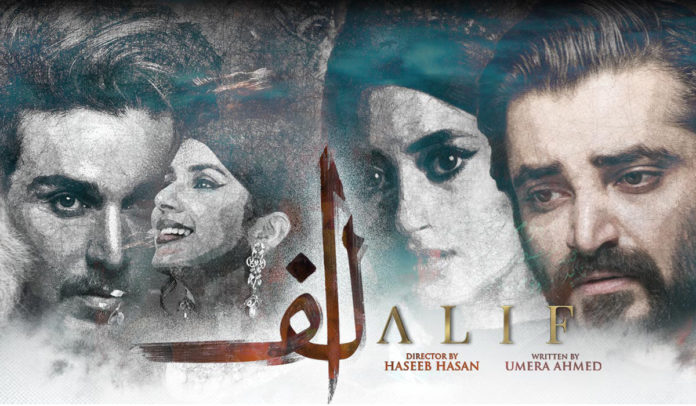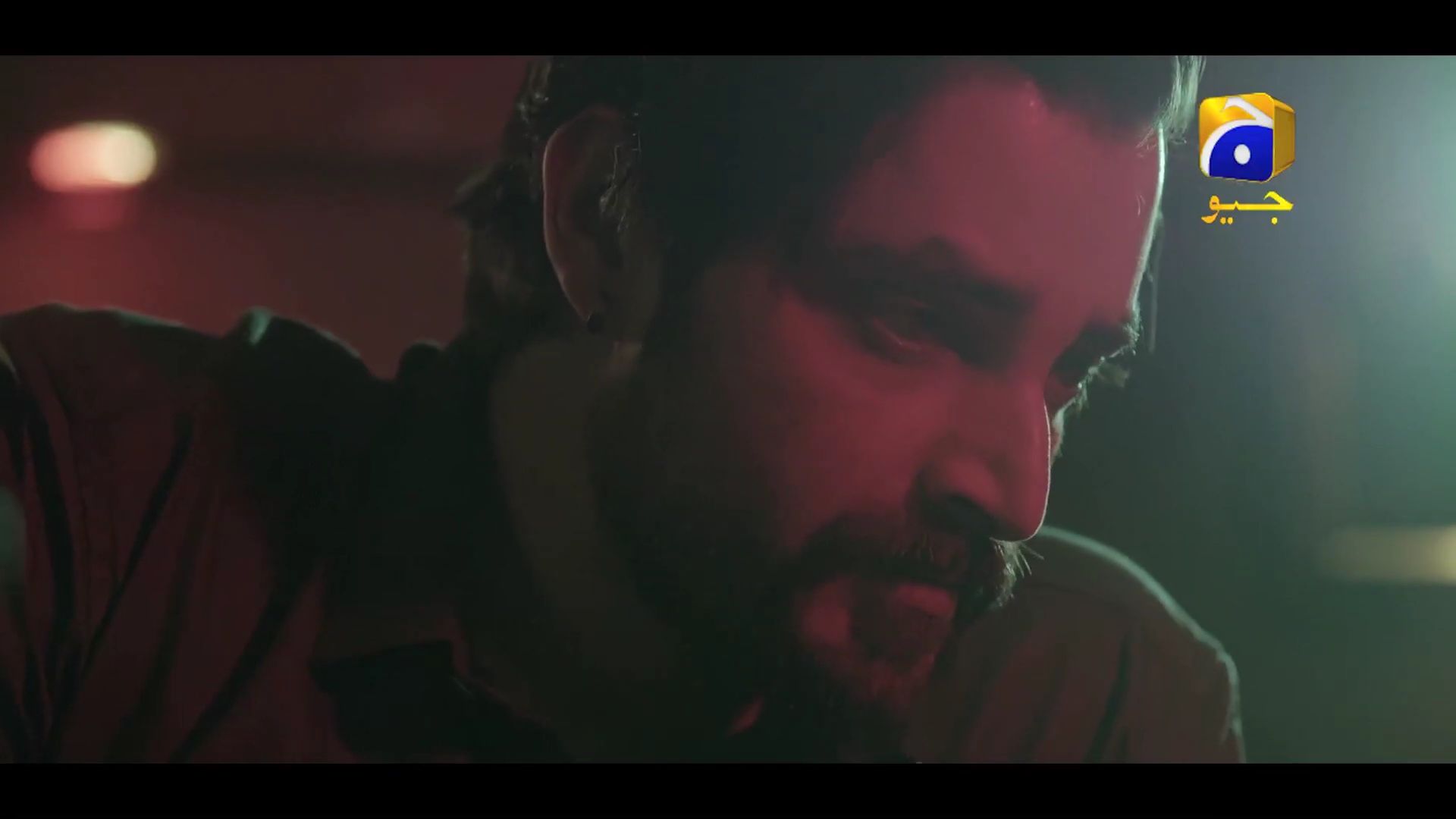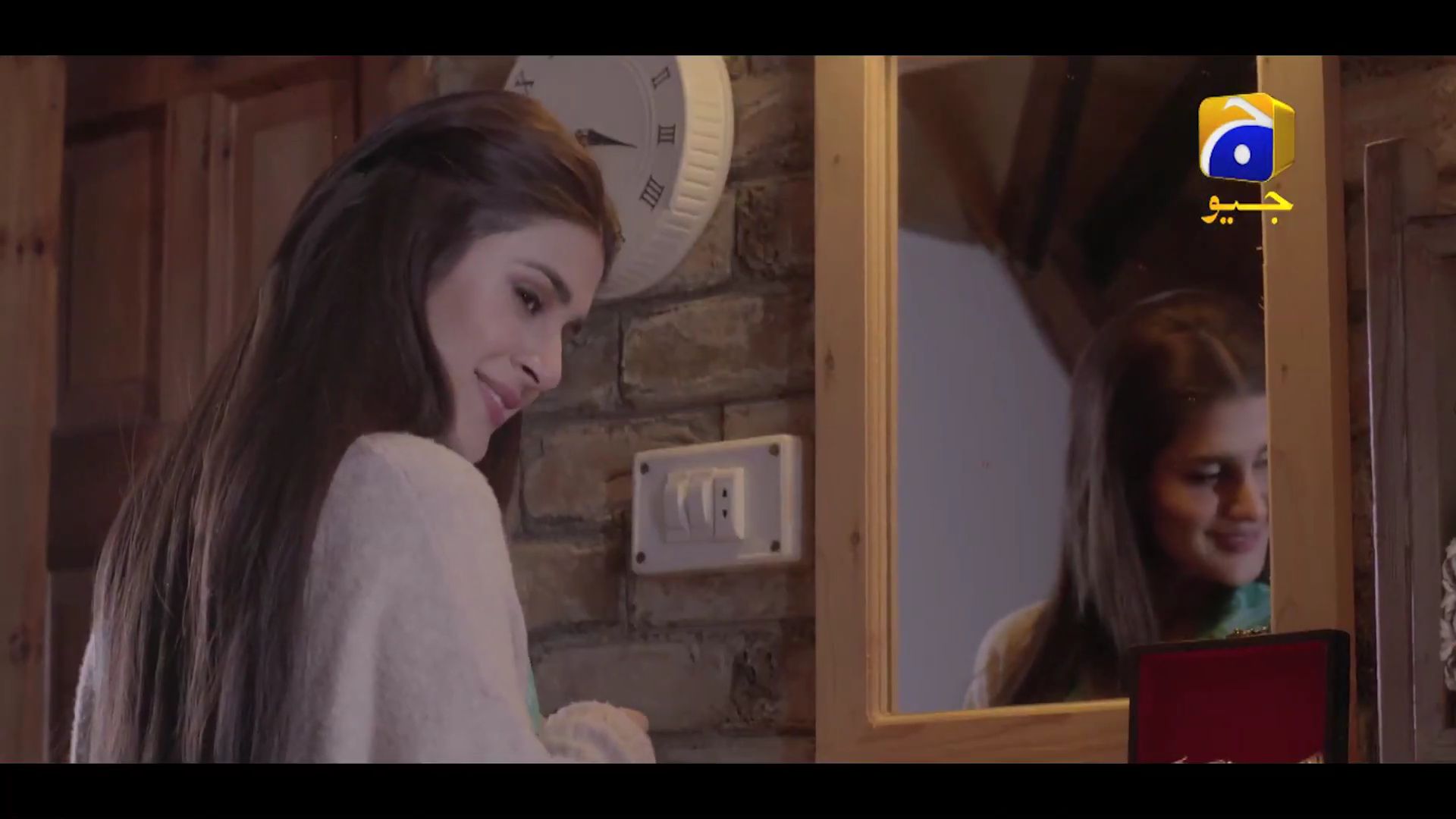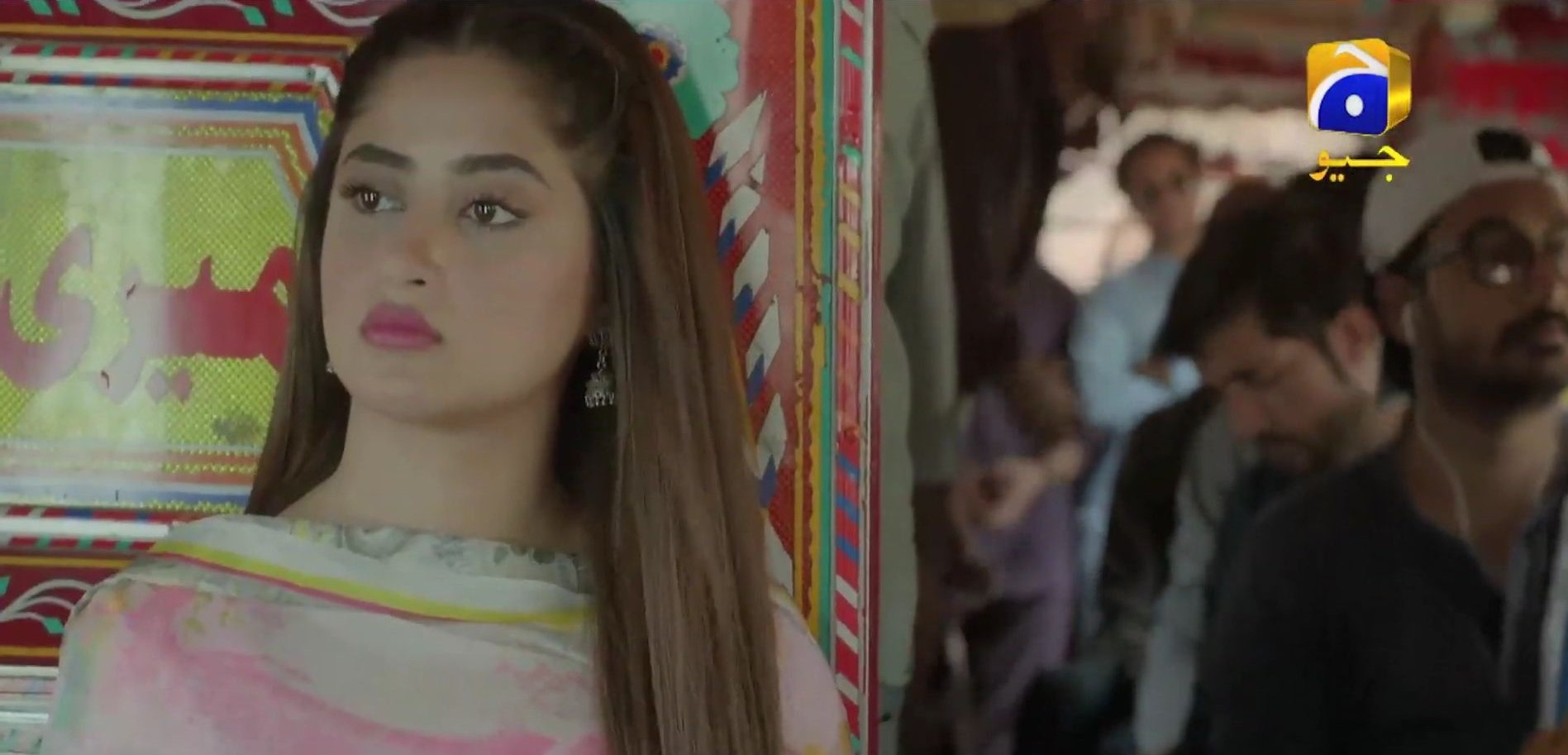The highly anticipated drama Alif finally premiered on Geo Entertainment and it shone as bright as one had expected it to. This Umera Ahmed script boasts of a stellar cast which includes Hamza Ali Abbasi, Sajal Aly, Kubra Khan, Ahsan Khan, and Manzar Sehbai; produced by the dynamic Sana Shahnawaz and Samina Humayun Saeed, and brought together by the magnificent Haseeb Hassab in the director’s chair. Alif being termed as one of the year’s biggest dramas is not without reason.
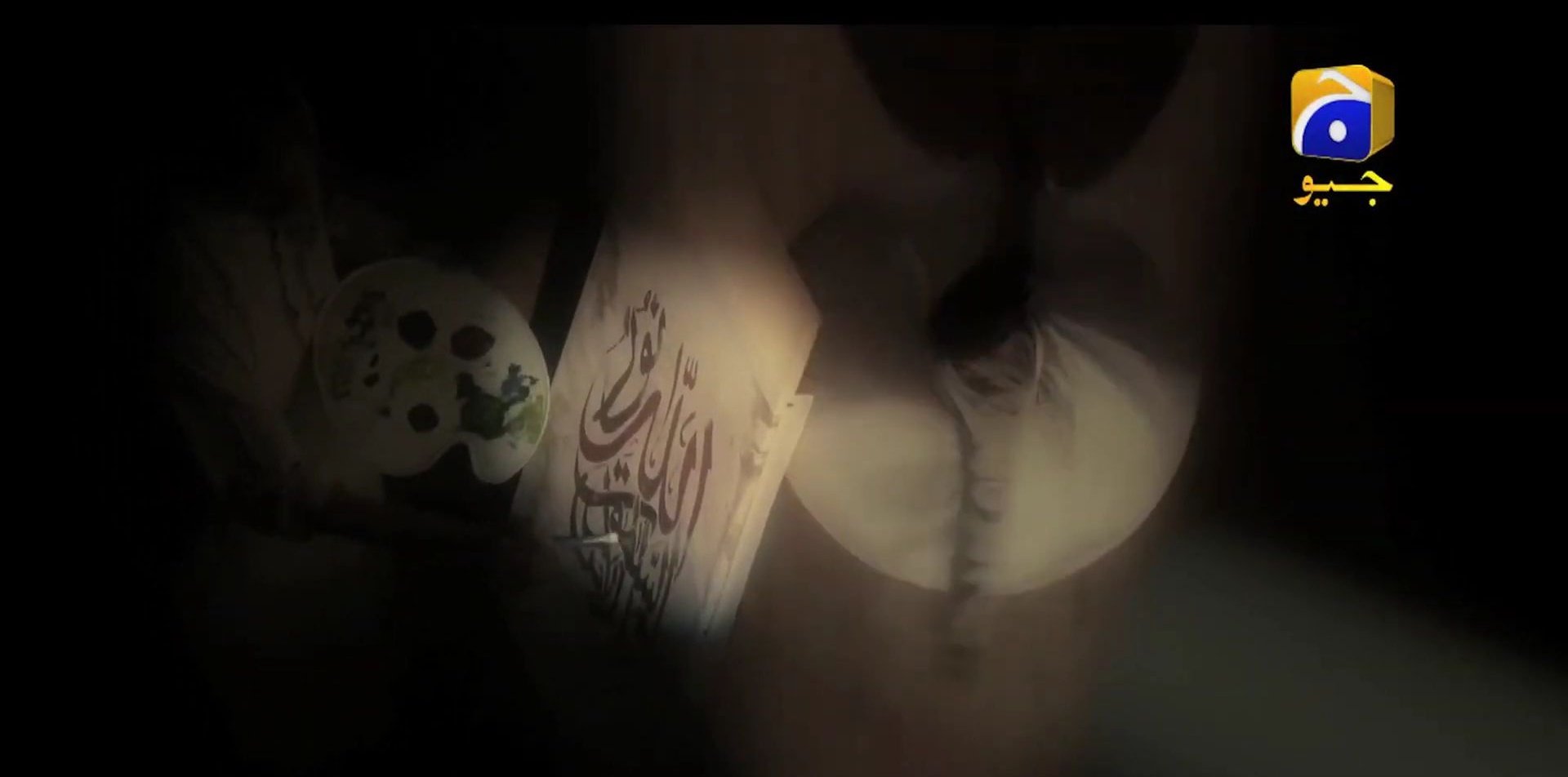 First impression
First impression
The first episode starts on a rather spiritual note with the audience being served with Ahsan Khan’s glimpses as he is seen performing a Sufi dance form, setting the tone of the story from the get-go. Shifting between past and present, Alif tells two intertwined stories. The story set in the past is of Taha Abdul Ala (Ahsan Khan), Husn e Jahaan (Kubra Khan), Qalb e Momin (Pehlaj Iqrar), and Abdul Ala (Manzar Sehbai). The present story revolves around the grown-up Qalb e Momin (Hamza Ali Abbasi) and Momina Sultan (Sajal Aly).
It is to Haseeb Hassan’s credit that he has managed to tell these two stories which are completely different in terms of setting, tone, and era with a distinct vision that does not make the two narratives confusing. If the past is filled with the innocence of a child writing letters to God, the present narrative is about the glamorous world of showbiz and how the people live in it.
Some of the most soulful moments of the episode belong to Qalb e Momin and Husn e Jahan. The equation between the mother and son is full love but also twanged with the mystery of Qalb e Momin’s father. Their relationship with God is given much significance. The present era goes deep in the world of the current-day entertainment industry. The glamor and the darkness of this world is shown in equal measures, as well as the struggle of an actress wanting to be a part of it for financial reasons but without compromising on her morals. Alif definitely brings up interesting topics up for a conversation about what does it mean to be a part of the entertainment industry in a constitutionally Islamic country.
The background music has been used fantastically in the drama, especially in the sequences where the young Momin is shown questioning Allah. The musical elements make the drama more nuanced and enhance the viewing experience. The episode is packed with ample bits of drama, display of natural emotions, sorrows, and a more realistic portrayal of the Pakistani entertainment world for the television screens.
Performances
Hamza Ali Abbasi shines in every frame he appears. The actor in him gets ample scope to prove his mantle as a performer. The allure of his deeply expressive eyes and the natural charm that he exudes make a rather unlikable character like Qalb e Momin a character worth getting invested in. Sajal Aly proves why she has become the darling of the masses. She taps in the innocence of her character without appearing naive. She perfectly balances the resilience and the desperation of Momina with a firm grip on all the varied layers of her character.
Kubra Khan is the surprise element of the show. Kubra gives a matured and nuanced performance that one has gotten used to expecting from seasoned actors. The actress has also worked on her accent and we can’t wait to see more of her as the drama unfolds and more information about her character is revealed. Child actor Pehlaj Iqrar in his debut show is very good to say the least. Ahsan Khan and Sadaf Kanwal in their brief appearances kept us wanting more.
Underwhelming aspect
The only minus in the screenplay was the depiction of modernity and the way it was projected. In one scene at the office where Momina and other aspirants sitting for their turn during an audition process, a fellow aspirant is shown smoking a cigarette which is a sharp contrast to Momina’s modest, dupatta clad appearance. Such visual cues depict a rather regressive generalization of the kind of people in the world.
In another sequence that follows, Qalb e Momin tells Momina that the role she was auditioning for was of a vamp who dances and woos men. This stereotypical association of dancing being an attribute of a negative character just feels so tiresome in today’s day and age. Our content writers need to stop generalizing. Instead of giving the audience the choice of deciding which character falls in the good category and which character falls in the bad category, Alif very clearly distinguishes between what is considered good and what is not. A more nuanced writing definitely would’ve been appreciated more.
Final Word
Alif has set itself apart from the other dramas on-air currently with its choice of subject matter and its execution. Brilliant performances paired with technical finesse, Alif manages to grip the attention of the audience instantly by having them invested in the main characters and their journey from the get-go.

